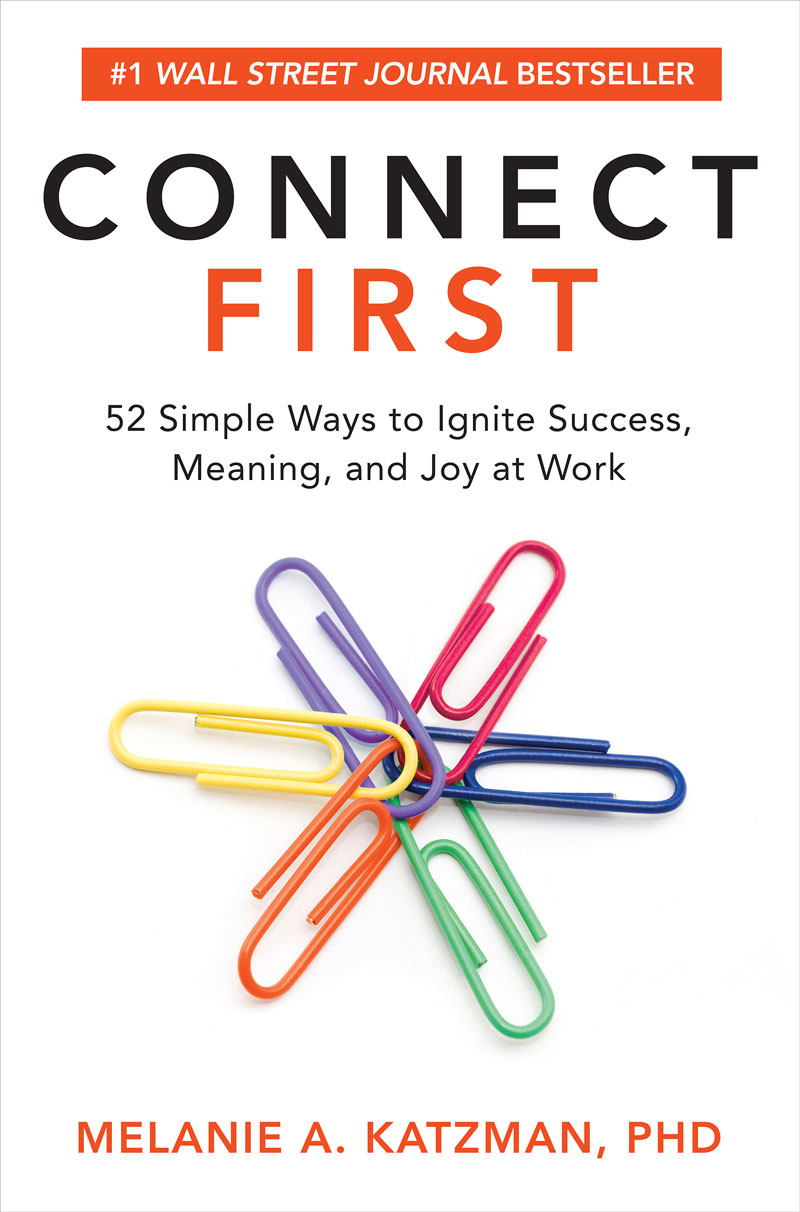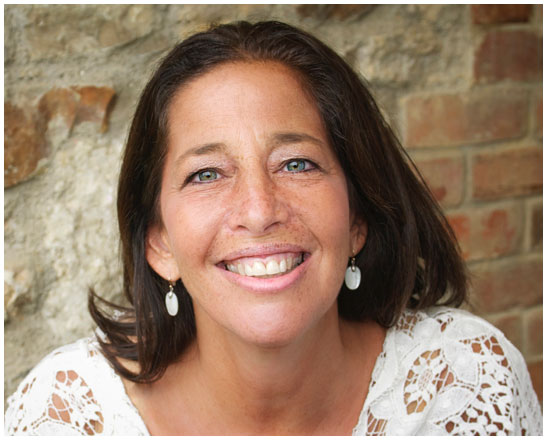A Q&A with author Melanie Katzman
As we shift from summer into fall and a new school year starts (many operating remotely, some in person, and some a hybrid of the two), our national crisis with COVID-19 is passing six months long – with no end in sight.
Many have lost their jobs or been furloughed. And millions of those lucky enough to keep working are continuing to do so at home – on Zoom, through email, in their living rooms or bedrooms, all while juggling kids, health and other stresses. It’s taking a toll on us.
In her 2020 book, Connect First: 52 Simple Ways to Ignite Success, Meaning, and Joy at Work, psychologist Melanie Katzman offers meaningful, inspiring advice for getting the most out of work. While work looks quite different now than it did a year ago, her advice has never rung truer. In this Q&A, we get some fresh advice from Dr. Katzman.
- Your book came out before the current crisis – and here we find ourselves in an unexpected "crisis of connection" with this new language of "social distancing."" What are some of the messages in the book that best speak to where we are today?
The central tenet of Connect First is that no matter the position you hold, the clothes you wear, or the community you live in, peel back a layer and at the human level, we all want the same things: love, safety, health for ourselves and our families. We want to be valued, included and respected. Too often people show up at work and step into a role and out of their own skin. They forget to be human at work. My book is a guide to establishing the personal connection first and from that strong and meaningful foundation, we can forge successful relationships as coworkers, clients, and community members.
We have seen during the pandemic that your air is my air. We are all inextricably connected. Our interrelationship knows no country, family, religious or racial boundaries.
Social distancing is a misnomer; we are physically distant and socially desperate. Any question about the innate need to BE WITH EACH, to connect, has been put to rest. We are hardwired to connect, and my book is all about embracing our biology for our personal growth and organizational success.
- What in Connect First is still relevant or more relevant?
The human drive for connection is on abundant display during lockdown. We all long for the relationships that breathe life into our daily routines. Connect First is all about establishing a foundation of trust and respect by connecting first as fellow humans. Too often people create a false dichotomy between their work self and ‘real’ self. As we work from home and Zoom into each other’s houses, that division has eroded. In many ways this period has validated the premise of my book.
Readers skimming the first few chapters of Connect First, where I speak about the importance of saying please and thank you, may think this is a Miss Manners manual, but in fact I wrote it as a manifesto for personal and systemic change. Connect First focuses on the power of individuals— no matter their position— to drive positive change through small, intentional actions. The seven sections of the book are: Establish respect, engage senses, become popular, grow loyalty, resolve conflict, fight fear, have a big impact.
As we seek to connect and be more inclusive, all while being physically distant, some chapters in the book are particularly relevant:
- Listen to inspire. Make a point to respond to and draw out all those faces in Zoom boxes.
- See everybody. Ask attendees to turn on their cameras and truly be together.
- Stand in someone else's shoes. Be sensitive and ask about the work from home situations your colleagues find themselves in.
- Invite others in. Especially while virtual, it's easier to include more people in discussions that would benefit from their insight and would also help them develop professionally.
- Challenge the status quo. This period of time is an opportunity to dream about what can be. We have already seen that traditional work life has functioned in new and creative ways. Let’s find the silver linings of innovation.
- How can we best manage our own sustainability – whether it be coping with Zoom whilst juggling family and worrying about money, or working on the front lines?
Boundaries, boundaries. Set limits on your days and on your meetings. 45 is the new 60. Start meetings on the hour. Give everyone 15 minutes between meetings to ‘commute’, to refresh or say hi to the family, or to be sure the kids are doing their virtual homework.
Make an effort to state the meeting's goal in the invitation. Reward people with the chance to finish even earlier if they stay focused. When meetings go on too long, people are triple tasking, checking their social media, emails and Amazon shopping page. Shorter meetings will likely produce greater results. Schedule walking meetings on the phone. Build in an hour to eat or exercise midday. Shift the corners of the room where you are working to feel like you are moving. Add flowers or fruit for colors. Have an end to the day. Make work disappear, close the computer, cover it with a sheet.
And remember to cry. It takes energy to fight back the sadness and loss we are all experiencing. And it can hit you at any moment. Too many of my clients are going numb trying to keep soldiering on but that’s not sustainable. We can’t emote on demand, but we can make space for our feelings when they hit us.
- You have done this for over two decades. What is one piece of career advice that’s important for those starting out, in the middle of their career, or close to the end of their career?
I do not think about divisions across age and position. It is a barrier to some of the richest discussions. No matter where you are in your career, do not underestimate your ability to make someone's day by simple acts that do not take much time or money. Always ask, "who else should be in this discussion?" Praise others, dare to ask hard questions and always leave space to dream (big).
- How can working on a diverse team make me a more successful employee or leader?
On a personal level, we can all sit comfortably in our echo chambers and lose sight of the impact of our actions (both intentional and not). Asking for feedback from a more diverse group of people eliminates our personal blind spots and presents opportunities for us to have a positive impact, on purpose, often through small but significant shifts in our behavior. This is where real meaning at work can be forged: in the relationships you may not have encountered or let blossom if you weren’t working together.
On an organizational level, a more diverse team enables you to better relate to and serve your customer base and to generate unique solutions more effectively. The more diverse the team, the broader your questions will be. Remember, it's not just your answers that make a difference. It’s the quality of your questions.
- What's next for you personally? What's really stirring you?
I am stirred — distressed — by the tsunami of mental health issues that are brewing now and will explode more vividly onto the scene long after we contain the coronavirus. As a mental health professional, this has been an incredibly busy period and I want to do my part to provide as many tools to the widest audience possible.

